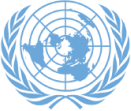Please check against delivery
STATEMENT BY H.E. Mrs. BATTSETSEG BATMUNKH,
MINISTER FOR FOREIGN AFFAIRS OF MONGOLIA AT
THE 21st ANNUAL MEETING OF FOREIGN MINISTERS OF LANDLOCKED DEVELOPING COUNTRIES
Theme: “Accelerating implementation of the Vienna Programme of Action in the aftermath of the COVID-19 pandemic and building momentum towards the Third United Nations Conference on Landlocked Developing Countries”
(22 September 2022, ECOSOC Chambers)
Mr. Chairman,
Excellencies,
Distinguished Delegates,
At the outset I wish to extend my delegation’s sincere appreciation to Honorable Dr. Lemogang Kwape, Minister of Foreign Affairs of the Republic of Botswana, for convening this important meeting of Foreign Ministers of the Landlocked Developing Countries (LLDCs).
I wish to express my heartfelt congratulations to Madam Rabab Fatima for her new appointment as Under-Secretary-General and High Representative for the Least Developed Countries, Landlocked Developing Countries and Small Island Developing States (OHRLLS). May I also commend the continued support extended by the UN-OHRLLS to the landlocked developing countries.
It is very encouraging for us to have an in-person meeting in the aftermath of the COVID-19 pandemic and discuss the pressing theme of accelerating implementation of the Vienna Programme of Action and building momentum towards the Third United Nations Conference on Landlocked Developing Countries.
We have no doubt that the 21st Ministerial Meeting of the Group of LLDCs will provide a strategic guidance for recovery from COVID-19 losses and the accelerated and full implementation of the Vienna Programme of Action for LLDCs for the Decade 2014-2024.
Mr. Chairman,
The COVID-19 pandemic, climate change, as well as the current triple crisis of food, energy and finance are exacerbating inherent vulnerabilities of the LLDCs.
At present, out of more than 540 million people living in 32 LLDCS, only 26 percent is fully vaccinated and one quarter of them are living in poverty. The prevalence of undernourishment in LLDCs is two times (22 percent) higher than the world average (10.8 percent).
Energy prices are still high, above pre-conflict levels and energy markets are under stress, as the heating season approaches in the northern hemisphere.
The combined effect of health pandemic and global economic recession is likely to impede not only implementation of the SDGs and Vienna Programme of Action, but also certain achievements of the past development.
However, speedy recovery, building back better and continuing progress in the LLDCs will depend on us – on our right policies and concerted efforts. The efforts will require enhanced and perhaps targeted support from development partners, transit countries, South-South partners, private sector, and foundations, as well.
The Government of Mongolia is working hard to build back its economy from COVID-19 crisis while implementing Agenda 2030 for SDGs and Vienna Programme of Action for LLDCs together with the Vision 2050, Mongolia’s long-term development policy document.
This endeavor is supported by and implemented through different policies and programs such as the national campaign to plant “Billion trees” at initiative of the President of Mongolia to combat desertification, “New Recovery Policy” to strengthen the economic independence of Mongolia to recover from the COVID-19 pandemic, and promptly address development barriers, and “Digital Mongolia” to improve to use the digital transformation as a new driver of economic growth and develop an accessible public services.
Mr. Chairman,
LLDCs’ persistent efforts for diminishing trade barriers and developing road transport, and energy infrastructure and connectivity overall have been hit hard by the COVID-19 pandemic. Therefore, we need to promote efficient and cost-effective access to and from the sea for LLDCs by all means of transport, on the basis of freedom of transit.
Mongolia is taking all necessary measures to reinvigorate its trade and economic relations in the region and beyond.
Being a landlocked country with huge transit potentials, Mongolia joined the Framework Agreement on Facilitation of Cross-border Paperless Trade in Asia and the Pacific and is expediting the implementation of projects under the China-Mongolia-Russia economic corridor in line with sustainable development. This includes the implementation of the initiative on Intergovernmental Agreement of International Road Transport along the Asian Highway Network which eases international road operation between the three countries on designated routes. Moreover, in line with the Intergovernmental Agreement on Dry Ports, in 2022, the Investment Research Center under my Ministry is conducting an assessment study on dry ports in Mongolia and capacity building activities.
We deem that air transport is a vital channel of transportation for LLDCs. Within the framework of the main goal of facilitating international trade, reducing trade barriers, and reviving the post-pandemic economy, we request the United Nations and its specialized organizations such as International Civil Aviation Organization (ICAO) to pay special attention and support to improve the capacity of the civil aviation and cargo transportation sectors of LLDCs. Based on this idea, Mongolia submitted a Working Paper “Improving Air Connectivity in LLDCs” to the upcoming 41st Assembly of ICAO to be held on 27 September to 7 October 2022 in Montreal, Canada, and we believe the agenda item will be supported by the member states, especially by LLDCs.
Mr. Chairman,
It is my pleasure to refer to the fruitful visit of the UN Secretary-General’s Antonio Guterres to Mongolia that took place on 8-12 August 2022. During the visit, it has been agreed that Mongolia and UN development cooperation will be further extended and upgraded to the next level.
The Secretary-General Antonio Guterres underlined Mongolia’s leadership in representing the landlocked developing countries within the UN and visited the International Think Tank for LLDCs in Ulaanbaatar.
Using this opportunity, I take note once again of the important role the International Think Tank for LLDCs and would like to urge the fellow LLDCs that have not yet ratified the Multilateral Agreement on the Establishment of the International Think for LLDC to do so at the earliest convenience.
I wish to invite transit countries and other interested parties to support the International Think Tank for LLDCs.
Mr. Chairman,
In conclusion, we want to underscore that our Group’s activities will play the key role in the global recovery from the pandemic and the global economic crisis determine and achieve practical outcomes at the conclusion of this cycle by 2024. We know that 2024 is an important year for the LLDC as it will mark the inauguration of the Third United Nations Conference on LLDCs.
We expect that the Third Conference on LLDC will formulate and adopt a renewed framework for international support to address the special needs of LLDCs, and to strengthen partnerships between LLDCs, transit countries and their development partners.
In conclusion, let me thank the Group of the LLDCs in New York and its past and present Chairs for their tireless efforts to promote and represent our shared interests.
I wish the Annual Meeting of Foreign Ministers of the LLDCs a full success.
I thank you.


